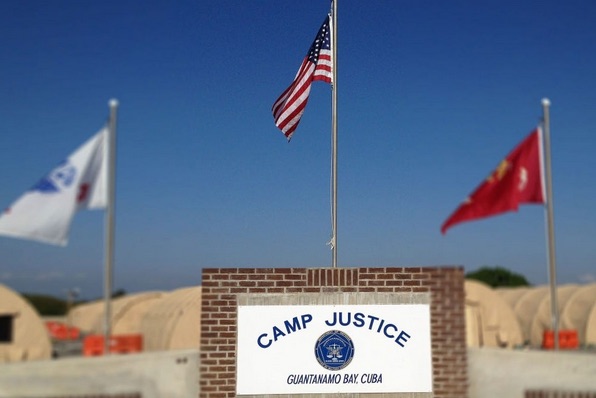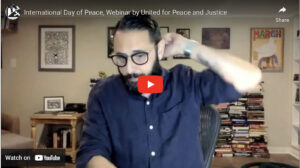Almost unnoticed amidst the chaos of the final days of the Trump Administration, the prison at Guantanamo Bay, Cuba began its 20th year of operation on January 11, 2021. In the immediate aftermath of the 9/11 attacks, the Bush Administration sent 780 Muslim men and boys to the prison. Nearly all were held without charge or trial. Today, 40 men remain in detention at a cost of $540 million per year, over $13 million for each detainee.
The detention facilities are where the Bush Administration first utilized torture, which they justified as “enhanced interrogation.” The camp, grievously misnamed “Camp Justice,” is also the location of the courtroom where the government has been trying but failing to conduct trials of the five men accused of planning 9/11, a man accused of carrying out the bombing of the U.S.S. Cole, and the trial of Hadi al-Iraqi. After nearly nine years, this offshore, jerry-rigged, ineffective military commission system has produced no legal justice, but the years of argument and testimony have revealed the shocking centrality of torture to all the cases.
The Obama Administration famously tried and failed to shutter Guantanamo. It is time to face the challenge again. In partnership with leading human rights organizations, September 11th Families for Peaceful Tomorrows—a founding member organization of UFPJ—is working to promote a clear path forward to closing the prison at Guantanamo, ending indefinite military detention, resolving the cases before the Military Commissions and terminating this effort to circumvent the rule of law. Doing so requires recognizing who the remaining 40 prisoners are and their differing specifics.
Five men are already cleared for release and four (possibly five) more may be cleared if the Periodic Review Board (PRB), halted by the Trump Administration, resumes its work. They should be relocated to other countries as speedily as possible.
Nineteen men (possibly 18 if the PRB clears five), who have been imprisoned between 12 and 19 years, known as “forever prisoners,” are neither cleared for relocation, nor is there any plan to charge them. They should begin the PRB transfer process immediately.
Seven detainees are facing pre-trial hearings in the Guantanamo Military Commissions in the three cases mentioned above. These failed proceeding need to end and the government needs to support plea bargains—accepting guilty pleas in exchange for forgoing the death penalty, after which the men should serve any sentences they receive at a location other than Guantanamo.
Benjamin Farley, one of the defense attorneys and a law-of-war counsel with the Guantanamo Military Commissions, has laid out the details of each group of detainees and how the steps described above can be achieved. Farley was, from 2013 to 2017, a Senior Advisor to the Special Envoy for Guantanamo Closure at the State Department. READ: “A Path for Renewing Guantanamo Closure.”
A thorough revision of how the U.S. views national and human security is long overdue. At the same time we as a nation must reckon with the damage that post-9/11 policies and practices have inflicted on our system of justice. September 11th Families for Peaceful Tomorrows has worked with U.S. human rights and civil liberty NGOs to present how this can happen. READ: Toward a New Approach to National and Human Security: Close Guantanamo and End Indefinite Detention and Uphold the Prohibition on Torture.



